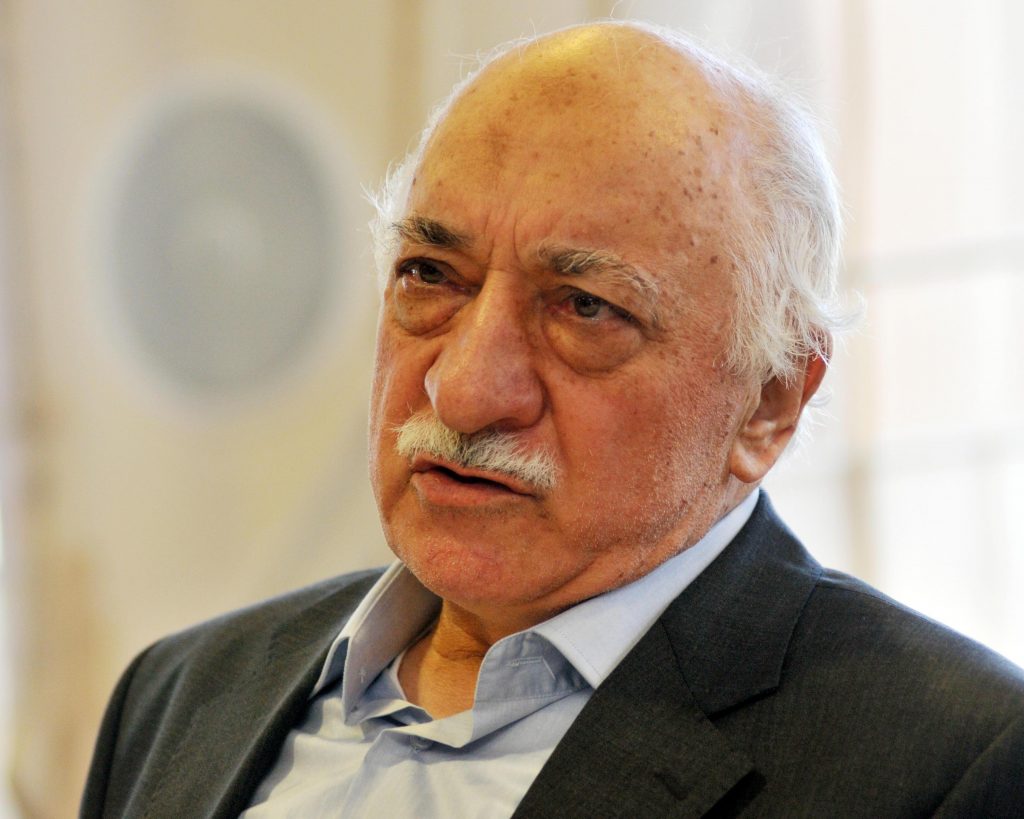Publication: Eurasia Daily Monitor Volume: 6 Issue: 228 December 11, 2009
By: Vladimir Socor
Prime Minister of Turkey Recep Tayyip Erdogan (L) with US President Barack Obama in Washington, DC
Turkish Prime Minister Recep Tayyip Erdogan’s December 7-8 visit to Washington (EDM, December 9) underscored the decline in Washington’s ability to influence Turkish foreign policy decisions. It is within this broader context, Erdogan and Foreign Minister Ahmet Davutoglu turned down Washington’s demands for Turkey to normalize relations with Armenia swiftly and unconditionally. This would have broken the linkage between the normalization of Turkish-Armenian relations and withdrawal of Armenian troops from certain Azerbaijani districts, as part of the Karabakh conflict resolution process.
That withdrawal and linkage are top national priorities for Azerbaijan –a fact that the US administration apparently discounted, amid pressures from Armenian advocacy groups and parts of Congress. Breaking that linkage would have undermined Azerbaijan’s position severely, with potentially lasting effects.
By asking Turkey to undercut Azerbaijan in that way, Washington jeopardized its de facto strategic partnership with Baku and put long-term US policy goals in the South Caucasus at risk. The Turkish government’s disagreement with Washington on this issue, however, has opened a fresh opportunity for the U.S.-Azerbaijan relationship to continue on a lessons-learned basis and develop further.
This turn of events is not without irony, given that Ankara is distancing itself strategically from Washington on a number of issues that the United States regards as its top policy priorities. This process gained added momentum in the run-up to Erdogan’s Washington visit.
Thus, Ankara turned down US requests to increase the Turkish troop presence in Afghanistan beyond the 1,600 currently deployed (a strikingly low ratio for NATO’s second-largest army after that of the United States). Ankara, moreover, reaffirmed its caveats against military operations and combat missions, confining Turkish troops instead to training and reconstruction projects, even as Washington urged support for its military “surge” on December 1.
Demonstratively, Turkey abstained from the International Atomic Energy Agency’s (IAEA) November 27 resolution censuring Iran (while Russia and China voted in favor alongside the United States). Erdogan had visited Tehran in October for the signing of economic agreements that could boost bilateral trade from $11 billion to $30 billion annually within this decade. The agreements of intent include exploration, production, and transportation of Iranian natural gas, notwithstanding U.S. sanctions in that sector. Ankara differs with Washington’s threat assessment regarding the Iranian nuclear program and is reaching out politically to Iranian President Mahmoud Ahmadinejad (Hurriyet, December 6; Zaman, December 6, 7).
Ankara is also distancing itself markedly from Israel, Washington’s closest Middle Eastern ally. Following Erdogan’s war-crimes accusations against Israeli President Shimon Peres at the World Economic Forum in Davos, Turkish public television produced an inflammatory serial in which performers impersonating Israeli soldiers enacted killings of Arab children. In October, Turkey revoked its invitation to Israel in the Anatolia Eagle air force exercise, prompting the United States to cancel its participation, and thus the event as such. Meanwhile, Ankara conducts a rapprochement with Hamas and other politically defined Muslim anti-Western forces (Jerusalem Post, December 7).
The Turkish government relies heavily on Russia to turn Turkey into an “energy hub” –an ambition that tends to work against Western energy security interests and US-backed projects. In the Black Sea, Turkey pursues a de facto condominium with Russia, sidelining NATO allies and partners and frustrating the United States in the process.
Without and beyond any value judgments, however, these trends demonstrate Turkey’s capacity to pursue policies contradicting those of Washington, when Ankara’s views and perceived interests so dictate. Common US-Turkish interests –most saliently on Iraq and the Kurdish problem– persist despite the multiple disagreements elsewhere. In the South Caucasus, meanwhile, Washington and Ankara both lost their former strategic focus and clear definition of common interests. Course corrections are possible, however.
Ankara’s decision to rally to Azerbaijan’s support in the negotiating process, despite US calls for a premature agreement with Armenia, is a case in point. On the eve of the Erdogan-Davutoglu visit to Washington, Davutoglu summed up bilateral relations as: “The United States always wants something from us” (Zaman, December 6). Such a situation inherently provides Turkey with ample bargaining power and even counter-leverage, which it has employed in this case with regard to Azerbaijan.
At least for now, Ankara’s move has prevented Azerbaijan’s isolation in the Karabakh conflict-resolution process. Isolation could have forced Baku to turn toward Moscow as arbiter of last resort in the Karabakh conflict, which ranks as Azerbaijan’s uppermost national priority. And such an about-turn could have compromised the energy security and regional security agendas for Europe and the South Caucasus-Caspian region. Washington and Brussels discounted the danger signals from Baku and underestimated the mounting sentiment of alienation there.
The problem can soon return, if Washington and Brussels renew pressure on Turkey to open the border with Armenia unconditionally, at Azerbaijan’s expense, before next April’s climactic debate on an Armenian genocide resolution in the US Congress.
https://jamestown.org/program/lessons-learned-about-turkey-and-azerbaijan-after-erdogans-washington-visit/






